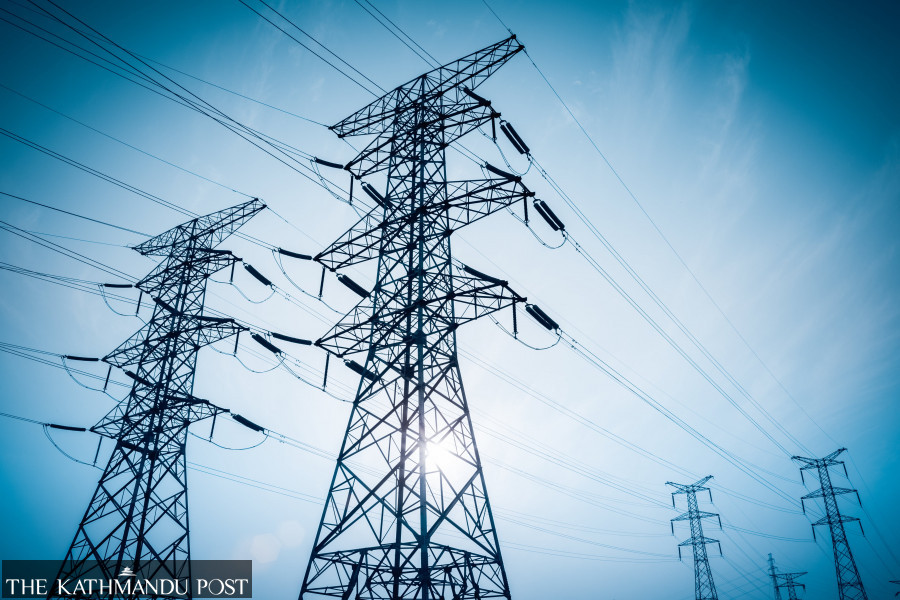Money
Government plan to allow private firms to trade power faces presidential obstruction
President Bidya Devi Bhandari has been sitting on an ordinance to amend the Electricity Act for introducing new provisions for over two weeks.
Prithvi Man Shrestha
The government’s plan to allow the private sector to engage in power trade has hit a hurdle with President Bidya Bhandari sitting on an ordinance for over two weeks. The government, through an amendment to the Electricity Act-1992, plans to license the private sector to trade power both inside and outside the country.
After withdrawing an over two years old bill with similar provisions on September 16, the Cabinet on September 26 approved the ordinance to amend the Electricity Act and forwarded it to the President’s Office for approval.
“We have received no information from the President’s Office on the status of the ordinance,” said Sushil Chandra Tiwari, a secretary at the Ministry of Energy, Water Resources and Irrigation.
Ministry officials said President Bhandari had invited Energy Minister Pampha Bhusal and her senior officials to discuss the ordinance just before the Dashain holidays.
The President had questioned why the ordinance was needed so urgently, said Tiwari. “And we explained the importance.”
But a source at the ministry told the Post that Bhandari had expressed her displeasure at the ordinance frankly.
As federal and provincial elections are scheduled for November 20, the caretaker status of the government also provides room for the head of the state to reject the ordinance.
Last month, she faced widespread criticism for refusing to authenticate a bill to amend the Citizenship Act-2006 that was passed by both chambers of Parliament. The constitution gives her no authority to reject a bill.
After the meeting with President Bhandari, Energy Ministry officials tipped the private sector that the proposed ordinance may not be enacted.
“Government officials have notified us that the President is unlikely to pass the ordinance,” said Ashish Garg, vice-president of the Independent Power Producers’ Association of Nepal.
Tika Dhakal, an expert adviser on communication to the President, said he was unaware of the status of the ordinance.
The private sector feels that Nepal’s power sector, which has long been suffering due to geopolitical difficulties, has also become the victim of political disputes.
For example, India has adopted a policy of not buying power from its neighbouring countries including Nepal if there is any involvement of Chinese components including investment or contractors. Relations between the two giants have remained frosty especially since the 2017 Doklam border standoff.
“Now, the private sector is not getting power trading licences due to domestic politics,” said Garg. “Our position is that electricity should be treated as a commodity, not as a political or strategic tool.”
Energy Secretary Tiwari told the Post in early October that the proposed ordinance has provisions to allow project developers to sell the electricity both in domestic and foreign markets with approval from the government.
Ordinances are issued by the government to introduce laws when Parliament is not in session. An ordinance has to be replaced by a bill within 60 days of the first sitting of the legislature. Failure to do so will result in the ordinance becoming void.
The Nepal Electricity Authority Act 1984 allows only the state-owned utility to engage in energy trade although the private sector can develop power projects and build transmission lines.
The private sector has long been asking the government for permission to engage in power trade.
According to the ministry, about half a dozen companies have already submitted their applications for power trading licences. Currently, the private sector developers sell electricity to the sole domestic buyer—Nepal Electricity Authority.
The private sector has shown interest in exporting electricity to India.
Nepal Power Exchange Limited, a Nepali private sector power trading company, and India’s Manikaran Power Limited, signed a memorandum of understanding on energy trading on January 10. As per the MoU, the Indian company will buy 500MW electricity from the Nepal Power Exchange Limited besides investing in the Nepali company itself.
The NEA’s unwillingness to buy electricity particularly from the run-of-the-river-type projects has also accelerated the need for more players in the electricity trading market, according to officials and private sector representatives.
According to the NEA, it has received applications for signing power purchase agreements from the developers of hydropower projects, whose combined capacity exceeds 11,000 megawatts.
“If the private sector also explores the market for Nepal’s power, the door opens for developing more projects in the country,” said Secretary Tiwari. “There are several projects in the pipeline.”




 8.22°C Kathmandu
8.22°C Kathmandu














